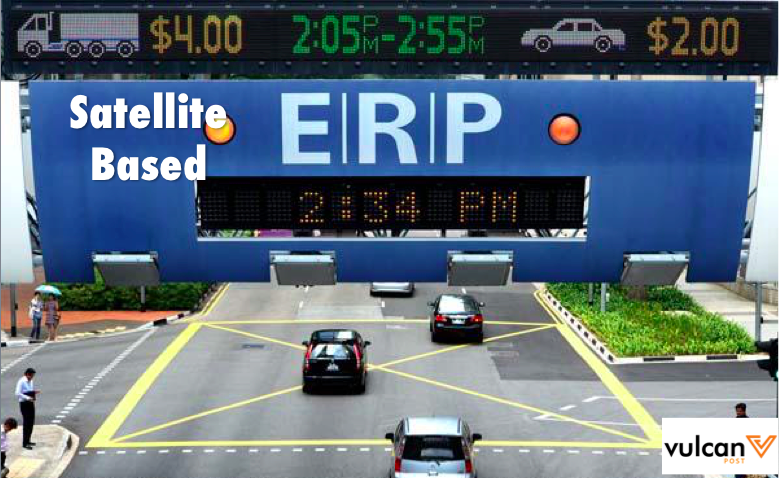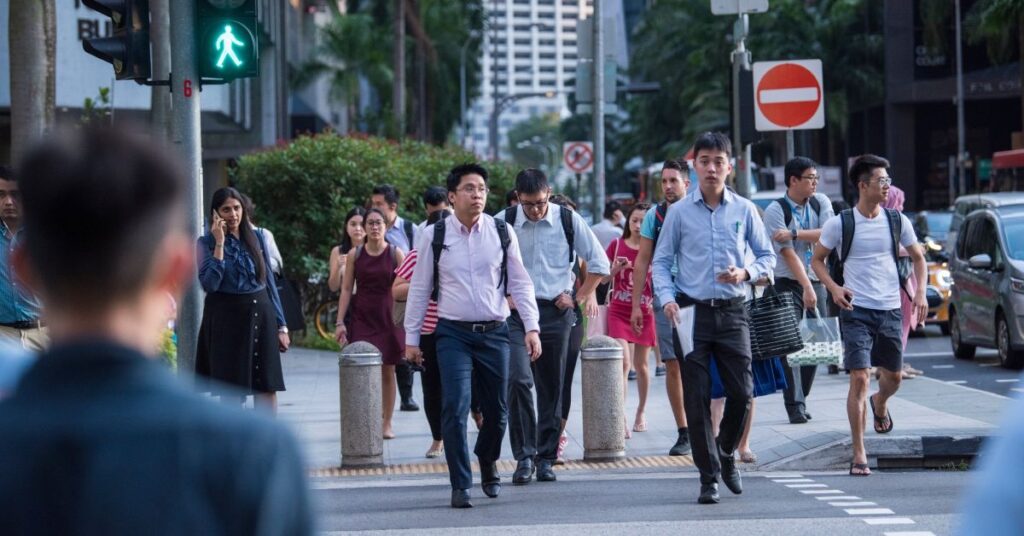Earlier last week, Singapore announced that it is awarding a S$556 Million contract for a satellite based Electronic Road Pricing (ERP). According to the announcement, development for the new system will begin in the second quarter of this year, with the new ERP expected to be operational in 2020.


With the new satellite based ERP, motorists will eventually be charged according to distance travelled and there will no longer be the need for physical gantries. Mr Lui Tuck Yew, Singapore’s former Transport Minister, shared that this would be a more equitable pricing method.
Putting the importance of ERP in context, the Land Transport Authority (LTA) reported that since the introduction of ERP, road traffic decreased by nearly 25,000 vehicles during peak hours, with average road speeds increasing by about 20%. Within the restricted zone itself, traffic has gone down by about 13% during ERP operational hours too. LTA also observed that car-pooling has increased, while the hours of peak vehicular traffic has also gradually eased and spread into off-peak hours, suggesting a more productive use of road space.
Also Read: New Carpooling App RYDE Is The Airbnb-Style Solution To Our Transport Woes
Data Tracking Concerns Overrated
Of course, with the announcement, various publications chipped in their thoughts on the matter. Here are some of the articles written based on data from publication tracking tool Parrot:

Some has expressed concerns that more needs to be communicated by the government on the data collected. Some has also claim that the system violates our privacy because it tracks our every movement.
To those concerned, we think that these “data tracking concerns” are overrated. We spoke to Ben Leong, Associate Professor at National University of Singapore, who’s also the Director of Experimental Systems & Technology Laboratory at Ministry of Education, Singapore. Ben concurs that, the data tracking concerns are overrated too – if the government really wants to track our movement, they can probably track that through our smartphones.

Besides our smartphones which are already capable of tracking our movements, there are various situations where we are also giving up our location, for example, when we are booking a ride on Uber or Grab, when we are checking in on Facebook, when we are using ATMs to withdraw money, when we are using credit cards – all of these contain our personal data which can be used to locate our last known location.
In the parliamentary session back in 2014, former Transport Minister Mr Lui assured that the data from the system will also be aggregated and anonymised – which means it will not infringe on the privacy of motorists. Mr Lui also said that modern handphones already have functions which would allow individuals to be tracked, and therefore he thinks that it would not be of any concern.
Cost Concerns
Some had also expressed concerns about the astronomical cost to the contract – S$500M does sound a lot.
In the same parliamentary session, former Transport Minister Mr Lui shared that the current gantry system will no longer be financially prudent because of the increasing maintenance cost. In total, there are 77 ERP gantries in Singapore, and most of them are coming to the end of its cycle.
“The annual operating cost has risen by 80 per cent over the last decade, and a large part of the system is coming to the end of its cycle, and it will have to be replaced, even if we do not move to a Global Navigation Satellite System GNSS-based system,” said former Transport Minister Mr Lui in a parliamentary session back in 2014.
While we are unable to find the costing data on how much it costs to maintain the current ERP gantries, a satellite based ERP could potentially be more cost effective and more flexible in implementing policy.

Perhaps the government should do a better job in helping us understand the thought process and numbers behind these implementation – instead of bickering about new policy implementations, we will then be better informed.
Also Read: You Shall Pass: S’pore Made App Could Reduce Traffic Jams & Help You Avoid ERP Routes
Featured Image Credit: Straits Times











